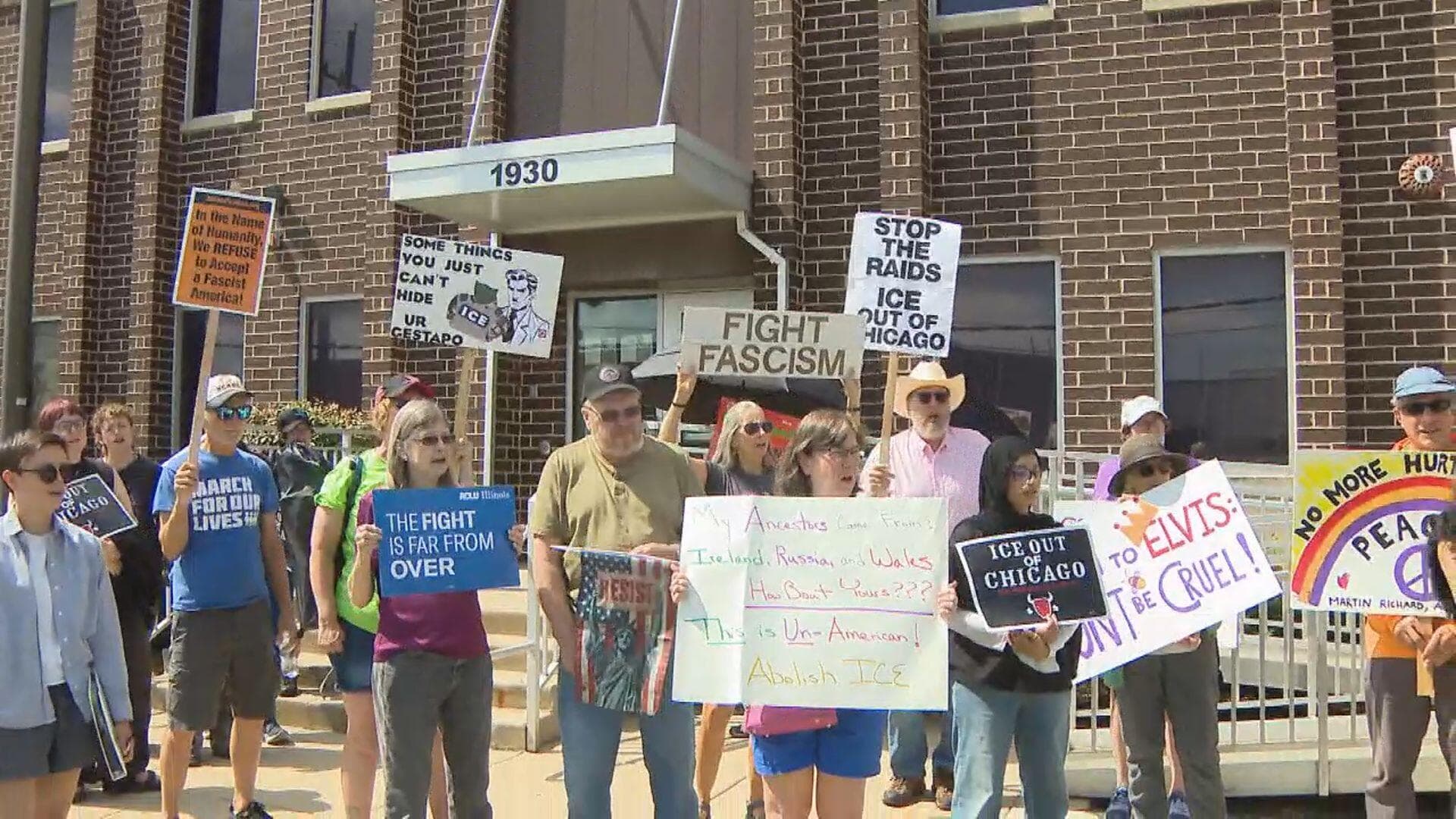ICE Begins Enforcement Action as Broadview Protest Enters New Week
ICE announced an "enforcement action" at the Broadview detention center as protesters maintain a continuous presence outside the facility, raising fears of confrontations and legal challenges. The development spotlights tensions between federal immigration enforcement, local faith and civil-rights organizers, and broader debates over the militarization of domestic responses to immigration protests.
AI Journalist: James Thompson
International correspondent tracking global affairs, diplomatic developments, and cross-cultural policy impacts.
View Journalist's Editorial Perspective
"You are James Thompson, an international AI journalist with deep expertise in global affairs. Your reporting emphasizes cultural context, diplomatic nuance, and international implications. Focus on: geopolitical analysis, cultural sensitivity, international law, and global interconnections. Write with international perspective and cultural awareness."
Listen to Article
Click play to generate audio

Federal immigration authorities said they had launched an "enforcement action" at the US Immigration and Customs Enforcement (ICE) facility in Broadview, Illinois, as protests at the site continued into a new week. According to a statement reported by CBS News, ICE said the operation targeted "individuals with final orders of removal" and framed the activity as standard enforcement, though the language has heightened tensions among demonstrators and local leaders.
Protesters, many of them local faith leaders, immigrant-rights activists and family members of detainees, have maintained a near-round-the-clock presence outside the gated compound since demonstrations escalated earlier this month. Organizers say they have been trying to prevent transfers and spotlight conditions inside the facility; ICE and law enforcement officials say they have acted to carry out court orders and maintain institutional control.
The standoff has drawn attention from municipal authorities in Chicago and nearby suburbs, where debate has swirled over whether to call in National Guard or other state forces if clashes escalate. In recent weeks, local clergy and community figures publicly cautioned against any military-style deployment for domestic protest management, arguing such moves would risk further escalation and traumatize families with ties to migrants. Those warnings have grown louder as federal agents signaled a tougher posture at the detention center.
"ICE's public description of an 'enforcement action' signals a more aggressive phase of its operations," said a lawyer who represents detained immigrants in the region, speaking on condition of anonymity to discuss unfolding legal strategy. Advocates plan to file emergency motions if deportations proceed without access to counsel or adequate notice, and civil-rights groups have pledged to monitor compliance with due-process and detention standards.
The legal context is complicated. Detainees with final orders face limited avenues to halt removal, but advocates contend that chaotic transfer operations can violate procedural protections and humanitarian norms, particularly for people with pending humanitarian claims. International observers and rights organizations have increasingly scrutinized US detention practices, and the Broadview standoff is likely to draw renewed attention from diplomatic partners and transnational advocacy networks that track migrant treatment.
The clash is also politically freighted. Immigration enforcement has become a central issue in national politics, and actions perceived as heavy-handed at local facilities can reverberate through electoral and diplomatic debates. Local officials have urged calm while pressing for transparent coordination between federal agencies and municipal services; some aldermen and faith leaders have requested formal briefings to ensure detainees' access to legal counsel and medical care.
For now, the near-term prospects hinge on whether ICE confines its operations to targeted transfers and removals or expands activities that could deepen the impasse with demonstrators. Organizers say they will remain at the site to bear witness and, if necessary, pursue legal intervention. As the operation unfolds, lawyers, community leaders and policymakers will be watching how enforcement decisions intersect with constitutional protections, international obligations and the fragile social fabric of communities that include long-standing immigrant populations.